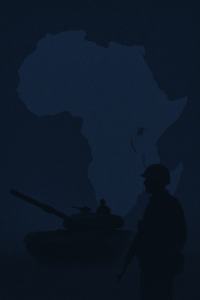Ebrahim Raisi, the President of the Islamic Republic of Iran (IRI), was killed in an alleged helicopter crash in Iran last month. The death of the President comes at a challenging time in the nation’s history, as Iran has been consumed by civil unrest and attempted revolution since 2022. After the murder of twenty-two-year-old Iranian-Kurdish woman Mahsa Zhina Amini, the Iranian people began the most sweeping movement against the current regime since the 1979 Islamic Revolution. Protestors consisted of both men and women and various ethnic groups fighting against the tyranny of the Islamic Regime. Women, Life Freedom, became the rallying cry and name of the attempted revolution which Iranian women and girls led.
Many Western governments responded to the protestor’s calls for justice and an end to the regime’s impunity with indignant rhetoric and condemnation of the IRI. Sanctions were imposed, speeches were made, and many meetings among activists and diaspora representatives were held from September 2022 onward. However, Western governments did not undertake tangible policy actions like designating the Islamic Revolutionary Guard Corps (IRGC) as a terrorist entity or ending diplomatic relations with the IRI.
Once news of Raisi’s death became known, Western governments and non-governmental organizations like the European Union and the United Nations (UN) published official statements offering condolences to the Iranian people. The UN even hosted a moment of silence to honour Raisi and his legacy of authorizing the mass murder of political prisoners during the ‘Death Commission,’ and oversaw Iran, accounting for 74% of all global recorded executions in 2023. Many Iranians celebrate Raisi’s death by dancing in the street, shooting fireworks, and handing out sweets to their fellow Iranians.
Under Raisi and beyond, the IRI has committed acts of foreign interference in many Western countries, including Canada. The Canadian Security and Intelligence Service (CSIS) identified the IRI as one of the four top countries that intend to harm and threaten Canadian citizens, political processes, and critical infrastructure. Raisi’s government has been instrumental in silencing, intimidating, and threatening Iranian activists based in Canada, especially the family members of victims of the downing of Flight PS752.
As Iran is poised to ‘elect’ a new president, the world should not be fooled by opportunities to diplomatically engage or partner with the IRI in good faith. Using words like ‘election’ to describe the presidential search is false, as the new President will be essentially chosen by Supreme Leader Khamenei and his inner circle. The IRI’s road ahead will be fraught with domestic instability, with the majority of Iranians no longer supporting the regime and advocating for regime change in a highly repressive environment.
There appears to be a lack of political will to meaningfully address the IRI’s threat to Canada, especially in the context of 700 active regime agents found to be living inside our borders. In Vancouver’s British Properties neighborhood, known as one of Canada’s most expensive communities, 300 luxury properties are owned by regime agents.
Canadian democracy is at significant risk from the threat of foreign interference, specifically from the IRI. In light of the death of Raisi, it is not the time to be lenient or subscribe to a detenté policy.









